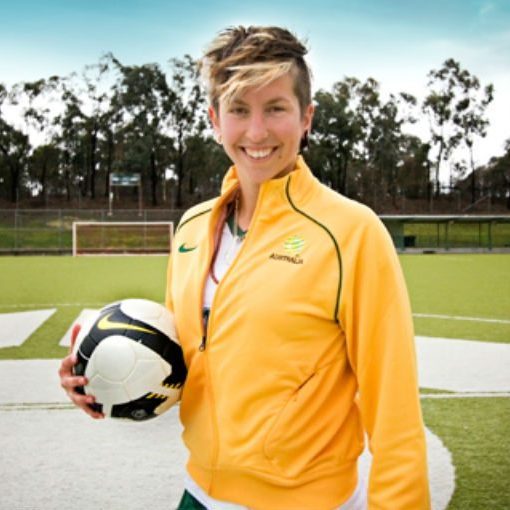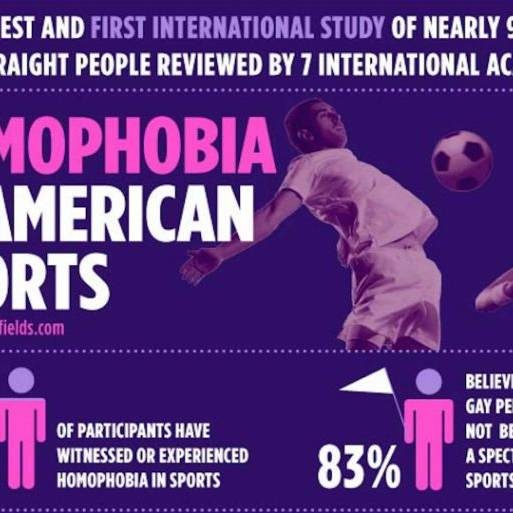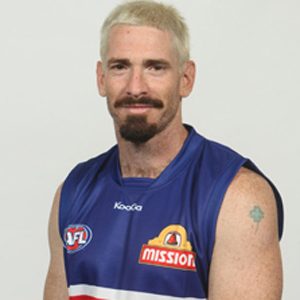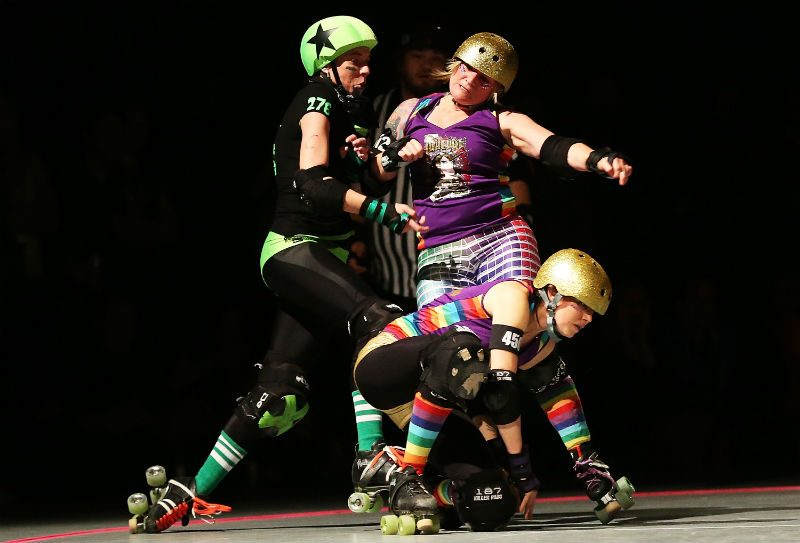 Documenting the history of Lesbians in Sport in Australia
Documenting the history of Lesbians in Sport in Australia
From the early Twentieth Century through to today, lesbians have been playing sport and forming dynamic sporting communities around Australia, in hockey, softball, soccer, AFL, cricket and roller derby to name just a few.
While the early decades of the Twentieth Century saw greater opportunities for women (though mainly white women) in Australia and elsewhere to be more involved in public life (for example, women were increasingly undertaking work and employment in traditionally male occupations and also speaking out about their rights to an empowered existence) lesbianism however was still misunderstood, feared, medicalised and silenced.
It was difficult for lesbians to socialise together in public, let alone play sport together. And yet community historians are now piecing together examples of lesbian women in sport who helped shape spaces for women to be active and visible in Australian society.
Pride History Group’s Robert French is currently researching the life of Jean Spruce, who in the 1920s played for the WD&HO Wills (the famous British Tobacco company) Hockey Team, and whose earliest known girlfriend was also a member of the team. As well as a hockey player, Jean was an active member of a Sydney-based women’s theatre group and worked in a Sydney department store.
Much further along in the 1960s and early 1970s lesbian social groups, particularly ‘Clover Businesswomen’s Club’ in Drummoyne, organised dinner parties, dances and sports events that were crucial for building a lesbian community and support base in spite of social discrimination and prejudice. The 1970s indeed marked a particular turning point, as some lesbians became inspired by the women’s and gay liberation movements to liberate their minds and bodies and challenge male dominated spaces and activities – sport being a crucial area where women could challenge ideas about themselves.
Lesbians empowered by these social movements set up women’s only households and rural women’s communities which often involved intensive physical labour. Some also held workshops for women on car mechanics and maintenance, classes teaching self-defence and martial arts, and some also started women’s circuses and theatre groups, all of which offered a space to experience their bodies and abilities in new ways.
The emergence of lesbian-identified and gender diverse sports teams also started offering spaces for lesbian women in particular to feel supported in their lesbian identity and in engaging in competitive sports and physical activity normally dominated by men.
As author and activist Jean Taylor has highlighted in her book Stroppy Dykes (published 2012) a lesbian softball team known as the ‘Radclyffe Runners’ started playing in Melbourne in 1978, followed by the ‘Amazon Lesbian Volleyball Team’ in the early 1980s, which advertised itself as strictly a ‘lesbian team’ and explained in a feminist newsletter that ‘Amazons’ stood for ‘Amazing, Marvellous, Active, Zany, Operating Collectively, Nice, Superdykes.’
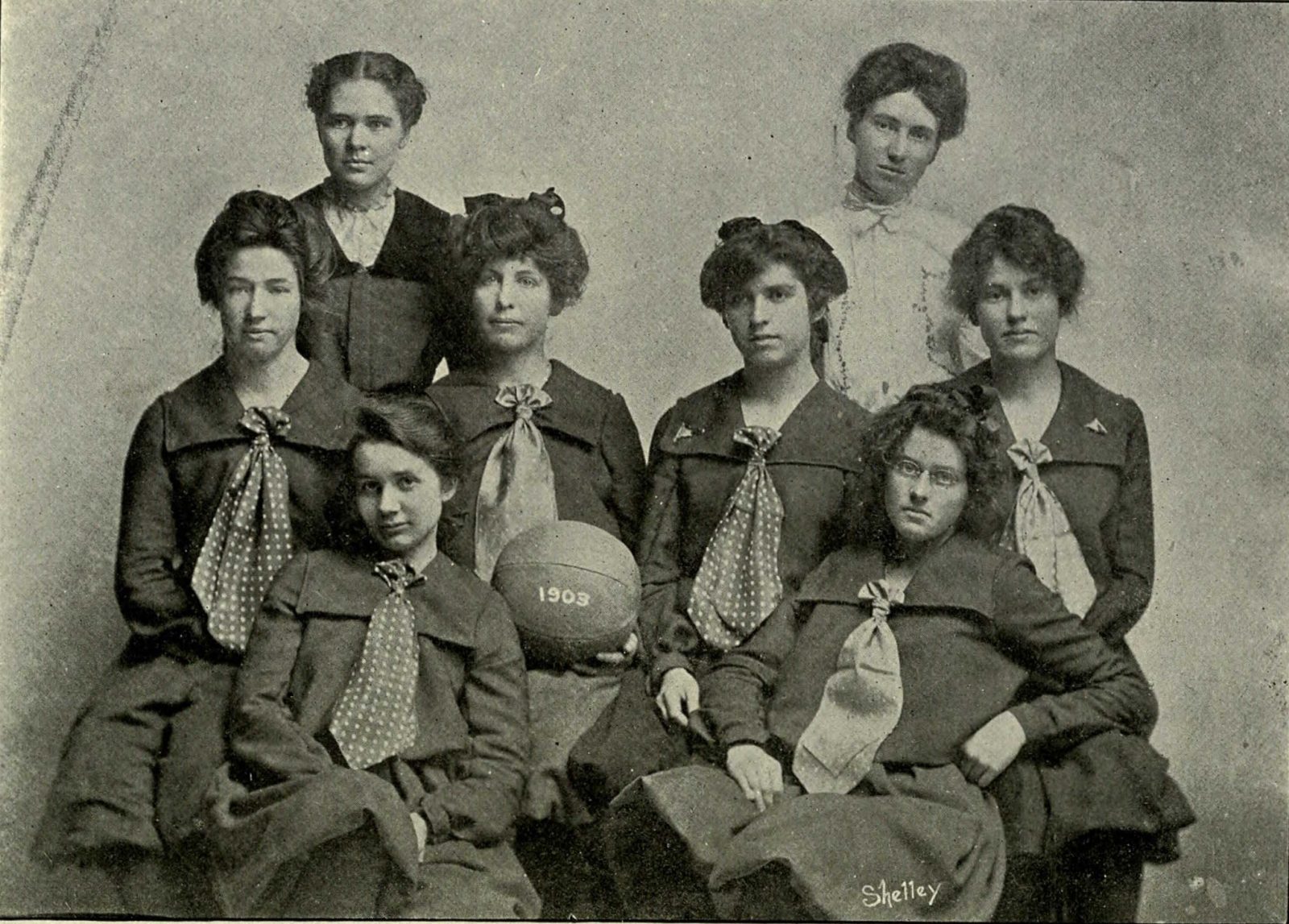
In Sydney, feminist and lesbian networks in the 1970s and 1980s were starting their own soccer teams, for example ‘The Crones’, as well as ‘The Flying Bats’, who also played as part of more mainstream soccer tournaments and continue to do so today. Furthermore, while not exclusively based around competitive sport, the annual ‘Amazon Games’ for lesbians and feminists were held around NSW from the late 1980s which, like the Sydney-based gay and lesbian ‘Poly-lympics’ (established in the 1970s), involved a number of novelty competitions including handbag hurling, marathons, rock throwing, archery and wood-chopping.
The Flying Bats 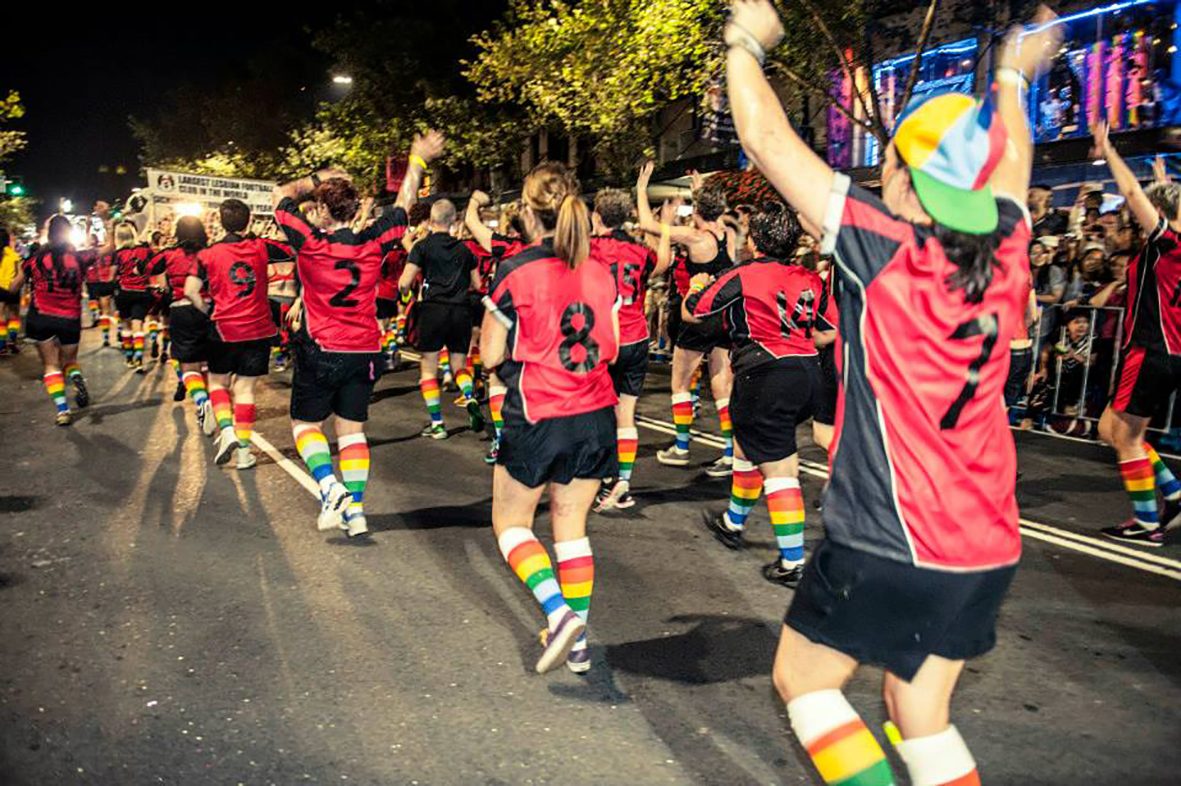 Women’s Football Club is a contemporary space inclusive of lesbians and allies, enabling a range of women to develop not only their soccer skills, but community and friendship through regular social events. It also has an ‘inspiring history’ according to Pride History Group’s Sarah Midgley, herself a member of the Flying Bats. This history is now being traced and documented in the lead up to the Bats’ 30th Anniversary. Over ten interviews with past and present players, coaches and supporters have already been recorded and more are underway. They will eventually be stored in the Australian Lesbian and Gay Archives in the hope that they will be accessed by current and future generations. President of Sydney’s Pride History Group (PHG), Dr Shirleene Robinson, has provided oral history training for the project and other PHG members have provided a network to reach players who were part of the Bats in its early years. An online resource for the history project is also being developed and has been supported by ACON.
Women’s Football Club is a contemporary space inclusive of lesbians and allies, enabling a range of women to develop not only their soccer skills, but community and friendship through regular social events. It also has an ‘inspiring history’ according to Pride History Group’s Sarah Midgley, herself a member of the Flying Bats. This history is now being traced and documented in the lead up to the Bats’ 30th Anniversary. Over ten interviews with past and present players, coaches and supporters have already been recorded and more are underway. They will eventually be stored in the Australian Lesbian and Gay Archives in the hope that they will be accessed by current and future generations. President of Sydney’s Pride History Group (PHG), Dr Shirleene Robinson, has provided oral history training for the project and other PHG members have provided a network to reach players who were part of the Bats in its early years. An online resource for the history project is also being developed and has been supported by ACON.
The interviews with former and current Bats members have already indicated that the team is integral to the history of lesbians in Australia, and Sydney specifically, becoming more visible and empowered after a period of significant social change in the 1970s and 1980s. They also highlight that for many years the Flying Bats have tried to foster an inclusive community that not only encourages the participation of women and gender diverse people in sport, but also actively challenges sexism, homophobia and transphobia.
And yet, the lesbian presence in sport has been extensively stereotyped over the years.
This is due in large part to the still rampant prejudice about women who occupy spaces and activities, such as football and soccer, normally considered part of ‘male’ culture. Studies have shown that players, coaches and spectators alike fear, reject and stereotype the presence of gay or butch women in sport. The media and broader public also tends to speculate and criticise women in sport who seem ‘too masculine’, commentary that we sadly still hear today in various forms. As a result there has been a great ‘deafening silence’ over lesbian experience in sport, meaning that while not all women who play sport are lesbian or queer, for those that are their presence, identity and even their physicality can be seen as an image problem and this will inevitably affect their ability to feel supported and safe.
Nonetheless, examples such as the Flying Bats and other lesbian and gender diverse sporting communities continue to meet and play throughout Australia, and in doing so directly challenge these homophobic and sexist ideas. Some, including the Bats, have also had a presence in the Sydney Gay and Lesbian Mardi Gras parade, linking them with the broader history of LGBTIQ activism in Australia.
At some point the spectrum of lesbian sporting communities and social groups will all need to consider their history and how they might go about documenting and preserving it, to highlight the past and present ways women in Australia have been actively asserting their physical strength, skills, ability, community and their sexuality.

